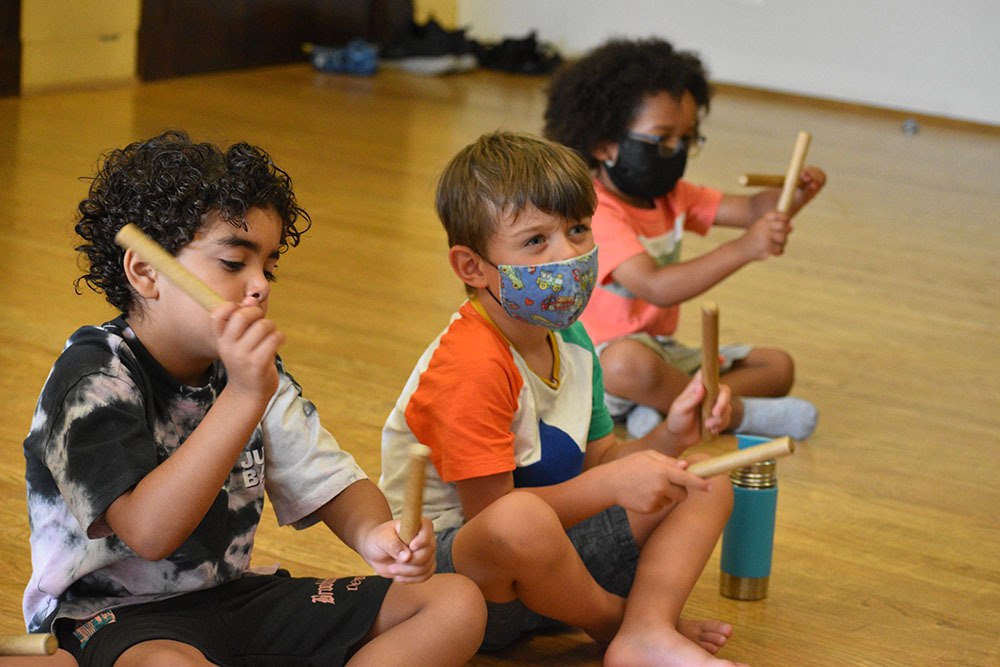Like grownups, kids can get stuck in a rut. Based on their interests or skills, a child can find himself pigeonholed early on — a strong athlete may not think to give art a try; an avid writer might be hesitant to audition for a play. To gain exposure to subjects not featured in most classrooms, kids can broaden their horizons by taking up a more unusual extracurricular activity.
To open your child’s mind to something different, it’s best to acclimate her to trying new things at a young age. The French Communication Institute in Philadelphia instills an early interest in foreign language by a running a bilingual preschool.
Kids spend part of the day immersed in French and the other speaking English, all while enjoying traditional preschool experiences. “During the first half of the day when the children speak French, they’re still learning other subjects such as math, science and history,” says institute owner Lee Corley.
Fancy footwork
Although teamwork is emphasized in school when students partner up for assignments, kids can also learn the skill while getting acquainted with a unique activity. At Dancing Classrooms Philly, trained artists travel to participating grade schools twice a week for 45-minute 5th-grade ballroom dancing lessons. Kate Rast, DCP’s artistic and education director, says the class teaches more than just dance moves.
“Many kids in 5th grade don’t think about dancing with a partner, so we’re not just teaching them dance but also how to work together,” Rast says. “It’s about gaining confidence and developing focus and discipline, both physically and mentally.”
Rock star reach
Rock to the Future’s MusiCore Afterschool Program in Philadelphia lets kids express themselves through their inner rock star. The program, which enrolls 35 9- to 17-year-olds at a time, begins each session with tutoring and homework assistance, then moves to the music room where kids learn guitar, bass, drums, keyboard or vocals from trained musicians.
“Kids have to keep up with their schoolwork in this program in order to participate — it teaches them to set goals and manage time,” says program director Josh Craft. “Through music — from songwriting to rehearsal — they get a creative environment for emotional expression.” The program also gives students the opportunity to play in a band, learn music theory, record their songs and play live at local venues. “When the kids get to play a show with their band and see a crowd, they feel their accomplishment of the goals they set for themselves,” Craft says.
Art for all ages
At the University of the Arts’ Pre-College Programs in Philadelphia, students of all ages hone their art skills, whether they’re a preschooler with no prior experience aside from finger-painting or a teen interested in delving deeper after taking an introductory photography class. The program offers courses in art forms kids are not traditionally exposed to in their formal art education.
“We teach subjects most students wouldn’t learn in a typical high school,” says Rosi Dispensa, interim director of Pre-College Programs. Options include individualized classes in screen-printing, welding, jewelry making, metals and different levels of graphic design. High schoolers in pursuit of a creative career can enroll in a portfolio-building class. And although elementary- and middle school-age students probably aren’t thinking about college admissions yet, Dispensa says the program teaches them a new way to express themselves.
“For our younger kids, it’s a unique outlet, especially in the Philadelphia area where there’s not much exposure to art in public schools,” she adds. While possessing a talent from a young age is beneficial, it’s equally rewarding for kids to step outside of their comfort zone and try something new.
Cheyenne Shaffer is a MetroKids intern and journalism student at Temple University.






